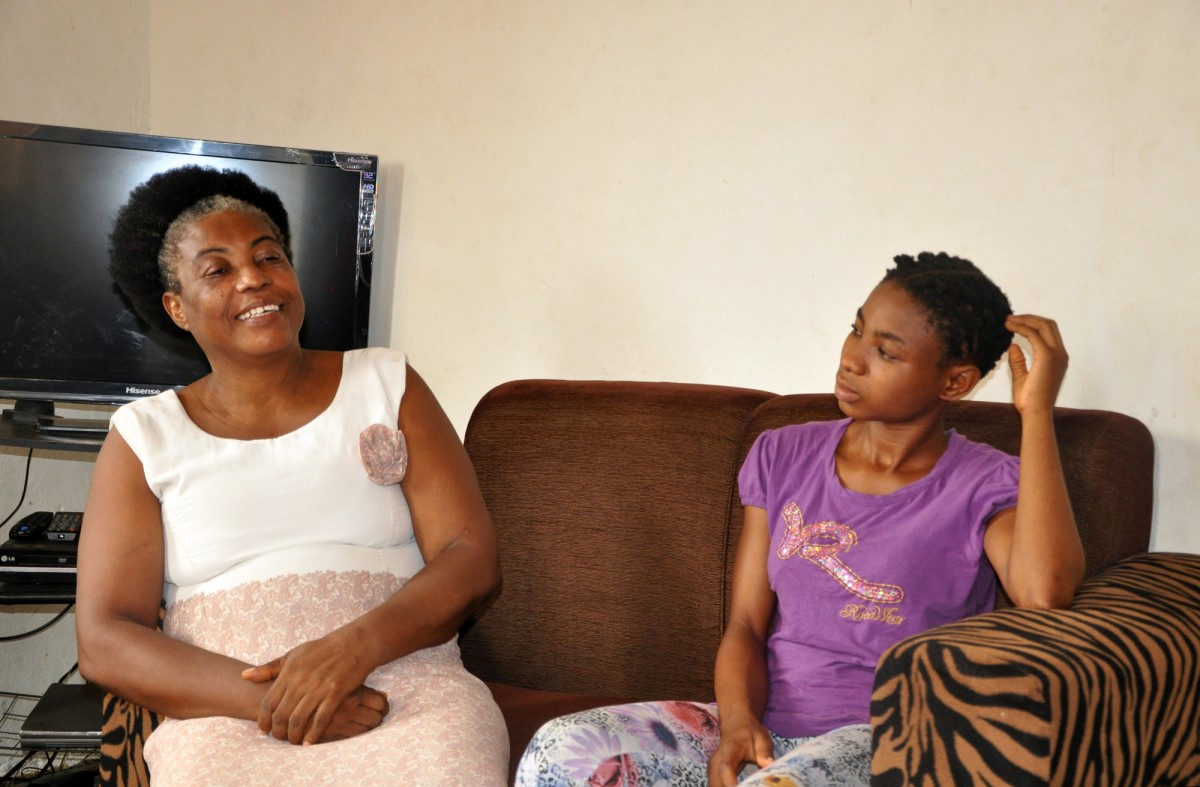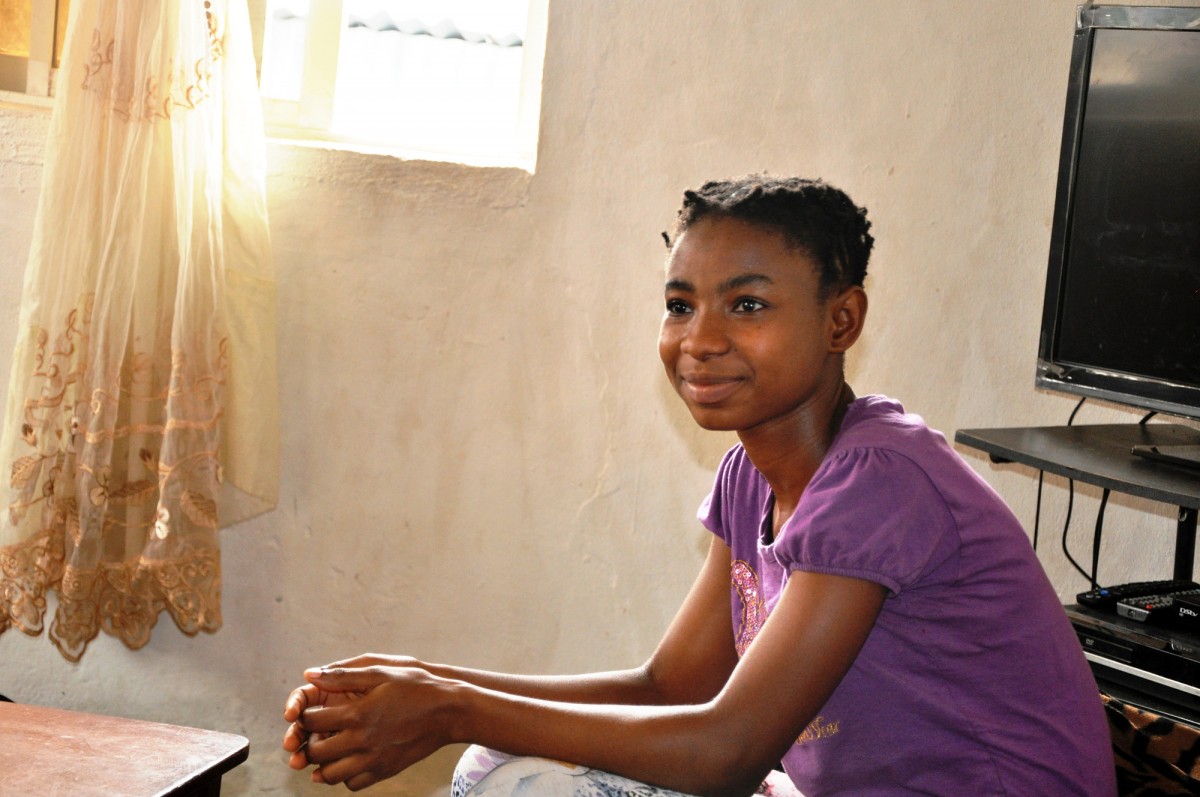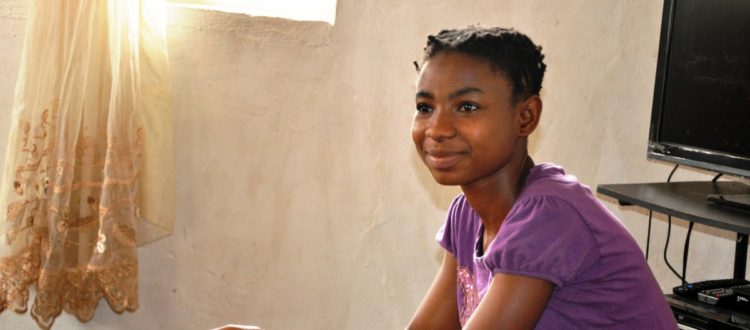Helping an orphan girl’s future bloom
In developing countries, girls often face discrimination from the earliest stages of life, through childhood and into adulthood. Some of them are forced to get married at a young age, while some of them are pulled out of school so they can help support their families by working in the field or caring for their siblings. The saddest part of these situations is that girls may not even be aware of their many future opportunities.
To open their eyes to their potential, Plan International is working to help teenagers, especially girls, build life skills, including self-confidence, interpersonal communication techniques and career planning through the Better Life Options and Opportunities Model+ (BLOOM+) project in Nigeria.
16-year-old Bright lives with her aunt and cousins in Cross River State, “Our facilitator taught us about setting goals in life by using objectives. It reminded me of my long-time dream, since I was in junior school, of wanting to write books.”
“At the BLOOM+ classes, I learnt how to control my emotions and improve my communication skills with my family. Before attending the classes, I used to talk back to my aunt but I have changed my ways now,” explains Bright who lost her parents when she was only six years old.

The pain of losing her parents as a young child left Bright lonely and vulnerable which often caused friction between her and her aunt who also has four children of her own to look after.
Bright’s aunt is pleased that Bright has a new opportunity to learn, “The reason Bright started the BLOOM+ class was because I could not afford to pay her tuition fees which meant she was sent away from school. To put an end to her boredom of being at home all day, I agreed that she could join the class three times a week.”

Bright joined the BLOOM+ classes organized by Plan International and learnt interpersonal communication techniques.
Bright, whose ambition is to become a professional counsellor, recently started writing her book after receiving encouragement from her classmates and facilitator. “I have almost finished my book now. I need to tidy it up before handing it over to one of the mentors to review,” she says, adding, “The book is for all young girls who are yet to discover themselves or who might think they are useless, so they can know there is a future waiting for them if they work hard without losing hope.”
